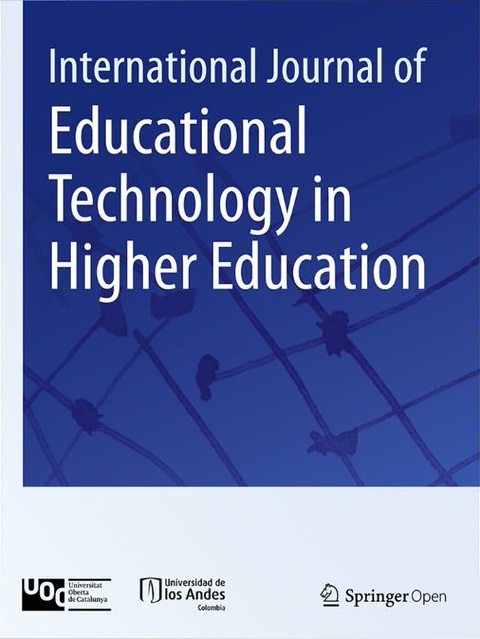The Effect of Self-efficacy and Course Design Quality on Students’ Satisfaction with Online Courses: A Structural Equation Modeling Approach
IF 16.7
1区 教育学
Q1 EDUCATION & EDUCATIONAL RESEARCH
International Journal of Educational Technology in Higher Education
Pub Date : 2023-08-12
DOI:10.46328/ijte.549
引用次数: 0
Abstract
Students’ satisfaction with online courses is considered as one of the most critical components in the continued use, as well as, adoption of e-learning applications. The study aimed at determining and analyzing the constructs that affect students’ satisfaction. It examined the effect of students’ self-efficacy and the quality of course design on students’ satisfaction, mediated by their attitudes toward online courses. The study was conducted at University of Ha’il. Responses of 202 students were used for the data analysis. The collected data was analyzed using two steps in AMOS: The proposed measurement model was developed using confirmatory factor analysis (CFA), and the relationships were examined using structural equation modeling (SEM). The results revealed that both students’ self-efficacy and the quality of course design had a significant positive effect on students’ satisfaction, mediated by their attitudes towards online courses. The outcomes of this study can help decision-makers and policymakers in higher education take essential steps to enhance students’ satisfaction with online courses and ensure that they continue to be used.自我效能感和课程设计质量对学生网络课程满意度的影响:结构方程建模方法
学生对在线课程的满意度被认为是继续使用和采用电子学习应用程序的最关键因素之一。本研究旨在确定和分析影响学生满意度的构念。本研究考察了学生自我效能感和课程设计质量对学生满意度的影响,并以学生对网络课程的态度为中介。这项研究是在哈伊勒大学进行的。使用202名学生的回答进行数据分析。收集的数据采用AMOS中的两个步骤进行分析:采用验证性因子分析(CFA)建立拟议的测量模型,并使用结构方程模型(SEM)检验其关系。结果发现,学生的自我效能感和课程设计质量对学生满意度都有显著的正向影响,并以学生对网络课程的态度为中介。本研究的结果可以帮助高等教育的决策者和政策制定者采取必要的措施来提高学生对在线课程的满意度,并确保他们继续使用。
本文章由计算机程序翻译,如有差异,请以英文原文为准。
求助全文
约1分钟内获得全文
求助全文
来源期刊
CiteScore
19.30
自引率
4.70%
发文量
59
审稿时长
76.7 days
期刊介绍:
This journal seeks to foster the sharing of critical scholarly works and information exchange across diverse cultural perspectives in the fields of technology-enhanced and digital learning in higher education. It aims to advance scientific knowledge on the human and personal aspects of technology use in higher education, while keeping readers informed about the latest developments in applying digital technologies to learning, training, research, and management.

 求助内容:
求助内容: 应助结果提醒方式:
应助结果提醒方式:


